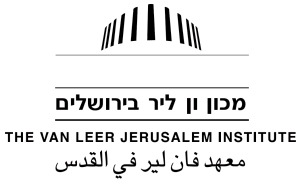Dr. Leon Wiener Dow, a fellow at the Shalom Hartman Institute in Jerusalem, discusses his new book, The Going: A Meditation on Jewish Law, an autobiographical and theological exploration of the relationship between God, law prayer, practice and community in Jewish law.
Sponsors
This season of the Tel Aviv Review is made possible by The Van Leer Jerusalem Institute, which promotes humanistic, democratic, and liberal values in the social discourse in Israel.
Support the show on Patreon
Receive extra segments, book discounts, and other patron-only perks by supporting the show on Patreon. Click to find out how a handful of dollars a month can help.
Photo: An English-language Bible.








“…risk living the way you think you are being called or commanded to live even if that stands at odds with regnant Jewish practice.”
—the interviewee herein
—
This interview considers, in part, the role of law in the construction of community, secular or otherwise. We tend to think of the law as a set of rules to be obeyed to avoid consequences, but even when so our ingrained avoidance takes on a positive tone. I do not stop at a red light late at night in deserted streets to avoid consequences; I do so because such avoidance has become a good in itself. This good, not being the avoidance of consequence entire, has the potential to become partially dislodged from the law as rote rule set. We can come to confront the law to contest, or accuse, deviation from this discovered good: this is what civil disobedience tries to do.
The call or command the interviewee hears is an expansion of the still, small, compelling voice that told Socrates to dissent; to, essentially, either critique so force a pause in his participant audience, or non-cooperate in a Gandhian sense (one of Gandhi’s earliest arrests was for distributing The Apology of Socrates to the public). Socrates claimed to support no constructed goal, false by his own words: in Gorgias Socrates ends his long living autopsy of the value of public discourse by, at the ironic urging of those left speechless, telling a myth, that which the first pages of the dialogue condemns. So Plato says what he disdains he needs must use. The civil rights movements of the 20th Century–those that endured–have been of this kind Plato could not do without, along the lines of the quote by the interviewee above. The law is not just command nor even legislation of command. It is as well the reasoned ballet after the clumsy acts of defiance and resistance; the law is confrontation with itself.
In Crito, Plato has Socrates refuse escape from jail for love of the city’s laws, even when they are wrong. He must show them this error, and to escape will simply confirm, to them, that he rather is the error. I do not think it is the love of law as codified rules that is truly at play here; rather, it is the faith, which is more than established belief in science or any institution, faith that an appeal to something that can be called legal reason, that creates the space in which we act, can be advanced, as though we perpetually strive to create a geometry of life through words which go far beyond any of our single lives.
This is not mass democracy. Nor is it Plato’s Republic of autocratic philosophers. It lives in the gap between these, home in neither, yet visiting both. Having no home, it perpetually fails, yet leaves something in its exits which endures. The call the interviewee himself makes often portends failure, but not unto oblivion. This, I think, the essence as well of constitutional process. Perhaps it is fantasy, but if one looks closely at the rise of science one will see fantasy abound.